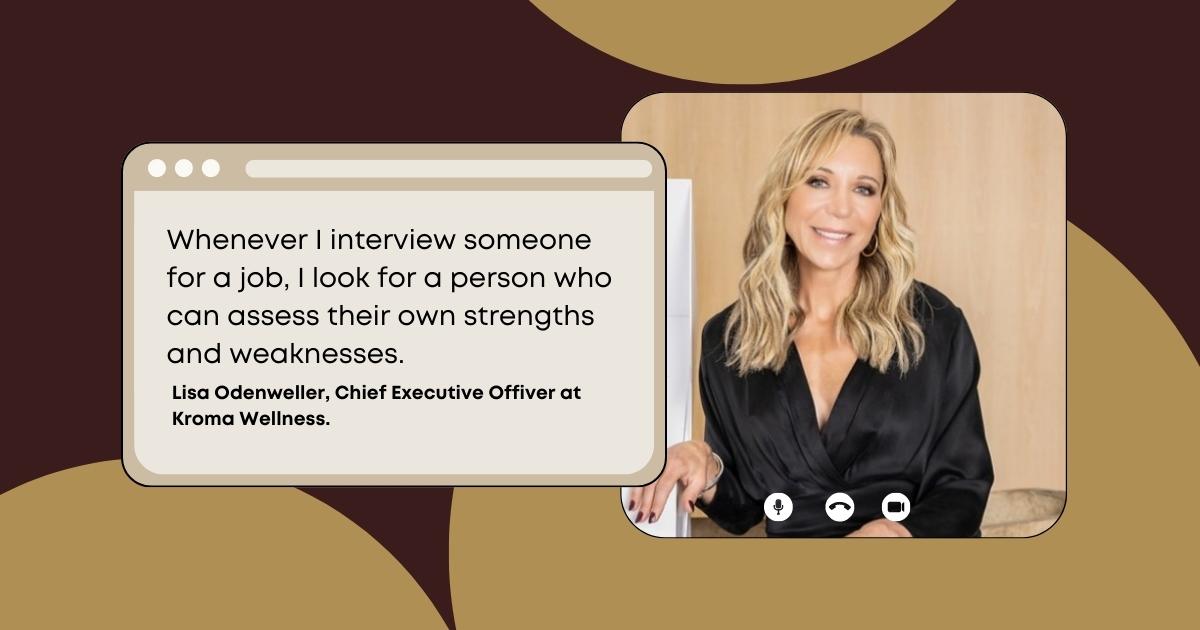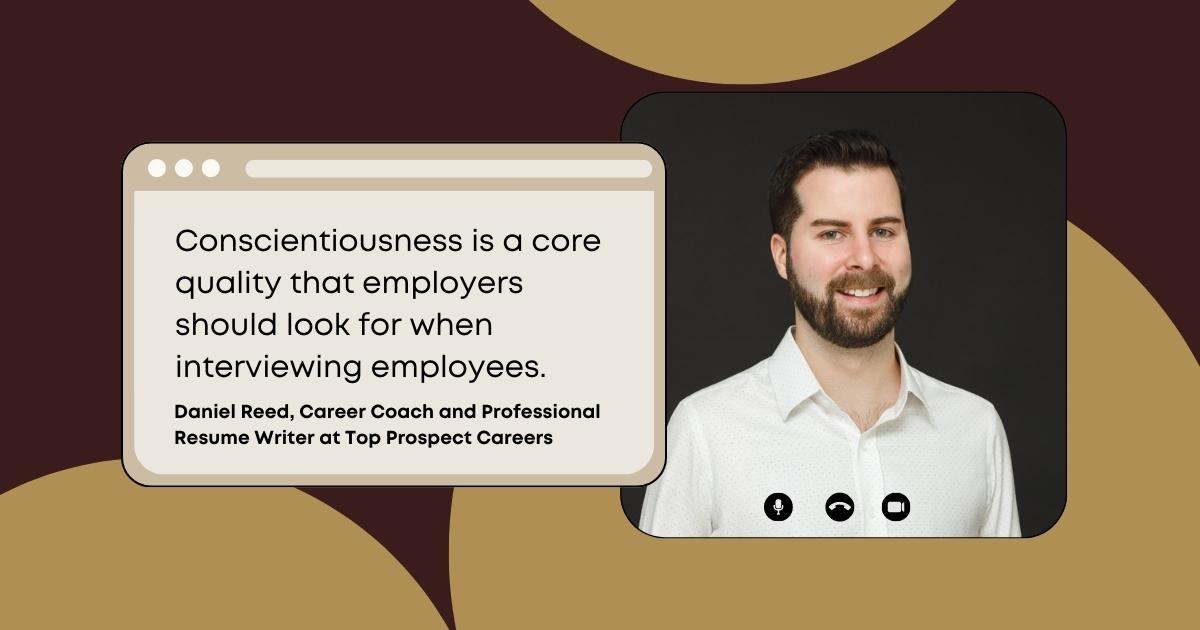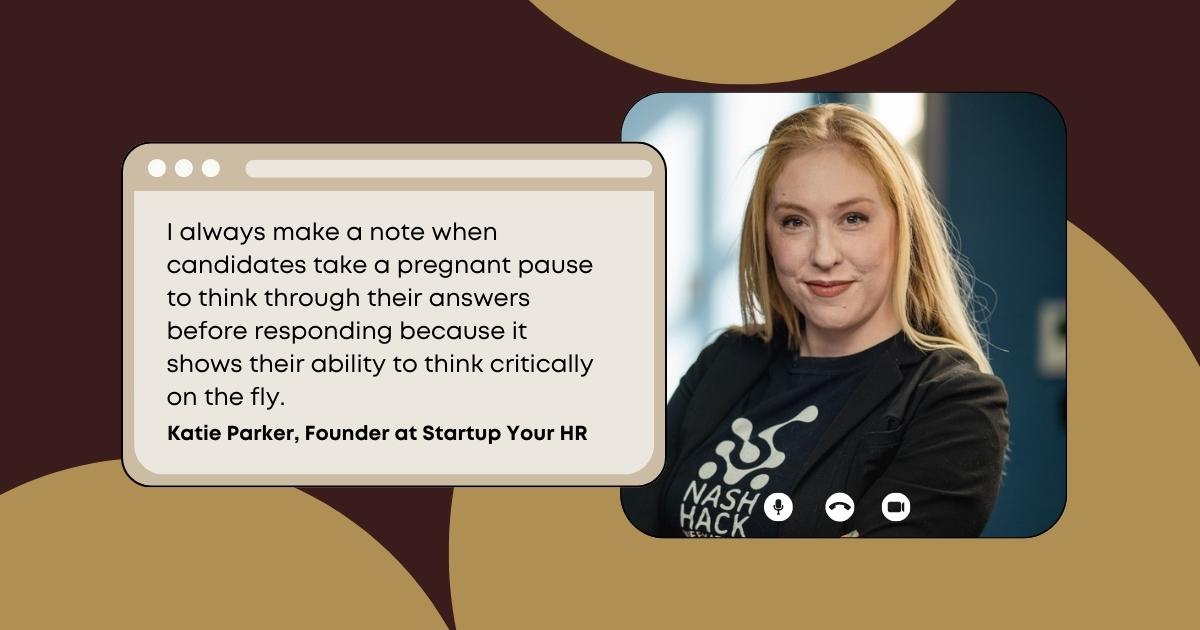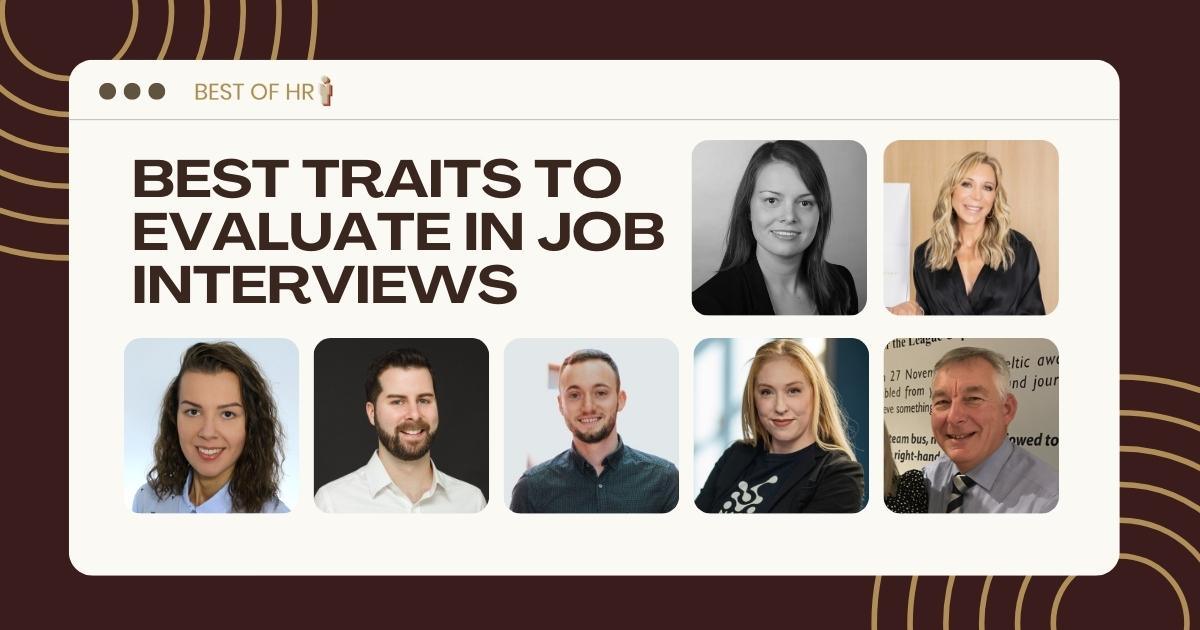What is one of the best traits to be looked at in a job interview?
To help you identify the best traits to evaluate in a job interview, we asked hiring managers and business leaders this question for their best insights. From enthusiasm to confidence to ability for teamwork, there are several traits that job interviewers need to critically look at in the candidates they are interviewing.
Here are 11 best traits to evaluate in a job interview:
- Enthusiasm
- Self-Awareness
- Inquisitiveness
- Conscientiousness
- Confidence
- Preparedness
- Integrity
- Thoughtfulness
- Culture Compatibility
- Humility
- Ability for Teamwork
Enthusiasm
As a recruiter, you will meet many highly qualified candidates that want to work for your company. However, it’s not only about the experience and skills that applicants bring to the table. There are many things that people can learn if they have the right attitude and mindset. That’s why you shouldn’t disqualify candidates just because they don’t fulfill your requirements 100%.
From my experience, enthusiasm is one of the most important traits to look for during a job interview. Enthusiastic candidates are willing to learn new things, apply out-of-the-box ideas, and go the extra mile to achieve their goals.
The glass is always half full for them, and they’re not afraid to take on new tasks and challenges. Working with people with a can-do attitude is much easier and more fun. Such candidates are more likely to inspire you and your team. Believe it or not, enthusiastic people positively impact our motivation, and their behavior encourages us to do things outside our comfort zone.
Dorota Lysienia, LiveCareer
Self-Awareness
Self-awareness. It’s rare that a candidate will show up who happens to have the exact experience, personality and skills you want for an opening, but self-aware candidates are almost better. They know what tasks will make them shine and what areas they may need a little more practice. Because of their ability to self-reflect, they know what they can deliver and that’s what they promise. Whenever I interview someone for a job, I look for a person who can assess their own strengths and weaknesses.
Lisa Odenweller, Kroma Wellness

Inquisitiveness
A desire to learn and a genuine interest in broadening one’s horizons is a trait every recruiter, team leader, or employer will certainly appreciate. Proactive candidates who go out of their way to learn new things and are no strangers to doing extensive research will always find plenty of admirers amongst recruiters. Inquisitiveness is by far one of the most universally sought-after qualities of candidates all around the world. Everyone displaying such a trait will no doubt find a job sooner than later.
Natalia Brzezinska, PhotoAiD
Conscientiousness
Conscientiousness is a core quality that employers should look for when interviewing employees. In fact, I’d argue it is the most important quality an employee could have as conscientious people will likely demonstrate a strong worth ethic, pay close attention to detail, be emphatic, and take pride in their work (commitment).
This manifests in the workplace with fewer deadlines missed, lower rates of absenteeism, consistent preparation, and ongoing professional growth. But how do you source this quality?
A conscientious person will likely be very prepared for the interview. So, monitor if they have researched the company, brought a copy of their resume (if in-person), arrived a bit early, provided samples of their work, and when answering questions be aware if they give specific examples from their past work experience.
Dan Reed, Top Prospect Careers

Confidence
One of the best traits to be looked at in a job interview is confidence. This does not mean that you should be cocky or overbearing, but rather that you should exude confidence in your abilities. This will show the interviewer that you are serious about the role and that you are capable of handling the responsibilities of the position. Additionally, confidence will help to put the interviewer at ease and make them more likely to want to hire you. So, if you want to make a good impression in your next job interview, remember to exude confidence in your abilities.
Jim Campbell, Wizve – Digital & Affiliate Marketing Agency
Preparedness
How prepared is the candidate? It’s a major deal-breaker for me whenever I see a candidate fail to do their homework about the job and the company. I also want to see the candidate be assertive and be armed with probing questions about the job and what it entails. I want to see that someone has done some research before coming in for an interview. I always do as much research as I can on a candidate before they come in. I review their employment and educational history, social media posts, etc. I expect the same in return.
Trevor Ford, Yotta
Integrity
Regardless of your grades or how hardworking one can be, the main trait an applicant should sharpen is integrity and honesty. No company in the world would want to hire an individual who is driven by their selfishness. Instead, they want people who will give their best for the company.
Gisera Matanda, WeLoans
Thoughtfulness
One trait that I find to be undervalued in the interview process is thoughtfulness. I always make a note when candidates take a pregnant pause to think through their answers before responding because it shows their ability to think critically on the fly.
When candidates rush to answer my questions, their responses usually aren’t fully formed and often don’t even answer the question I’ve asked. I also like to watch for thoughtfulness because it’s not a trait associated with a certain personality type.
Introverted candidates often get looked over because they are not perceived to be ‘enthusiastic’ when really they’re not driven to talk as much. I hate that because research has shown that diversity of all kinds in the workplace is a catalyst for success. In short, I’m not looking for the candidates that jump to quit answers and tell me what they think I want to hear. I am looking for candidates that thoughtfully answer questions with applicable insights and experiences.
Katie Parker, Startup Your HR

Culture Compatibility
The precise definition of “culture fit” varies by organization. But it’s not just about who you want to have lunch or drinks with after work; it’s about who understands and embraces the workplace and mode of work, from the open-space layout to the dress code. Culture fit may even differ between teams. It’s a good idea to sit down with your team members and talk about what culture fit means for your team, narrowing it down to specific traits or values.
Joy Were, Getpaydayloan
Humility
Humility is one of the most challenging traits in job interviews, as potential employees are doing their best to promote themselves as much as possible for a particular role. However, being modest and understanding shows an attitude of being open to taking criticism which means you are willing to learn and grow from your mistakes.
Steven MacDonald, Scotlight Direct
Ability for Teamwork
Communication skills. For example, a great candidate is one that is excited about the idea of working with a team and collaborating with their coworkers. Especially now with the rise of distributed workplaces, it’s important that you’re hiring with a candidate’s communication skills in mind. If they seem more of a head-down, lone ranger type of worker and your business processes place an emphasis on teamwork, they probably aren’t a good fit.
Bradley Hall, Sonu Sleep
Terkel creates community-driven content featuring expert insights. Sign up at terkel.io to answer questions and get published.

